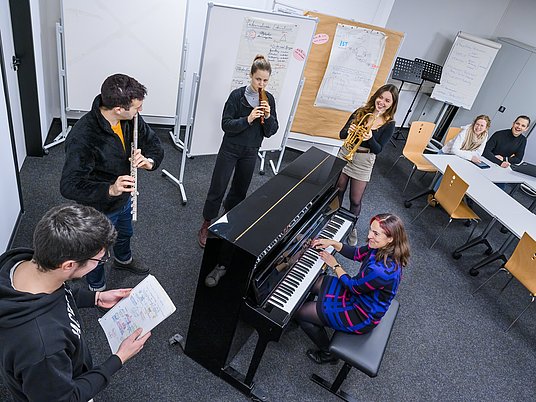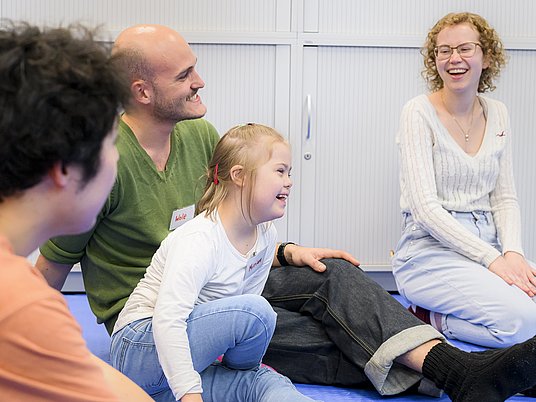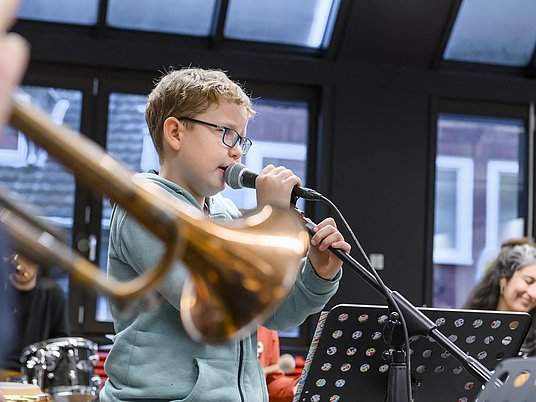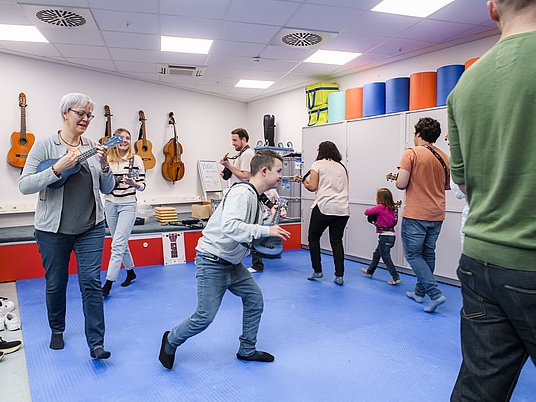Bachelor of Music -
Instrumental / Vocal Pedagogy
Artistically profiled. Pedagogically on the pulse.
The Bachelor of Music Instrumental/Vocal Pedagogy degree course combines a sound education in the instrumental and vocal main subject with a wide-ranging artistic and music pedagogical qualification. Today, fields of work for instrumental and vocal teachers not only include individual and group lessons at music schools, but also at various interfaces, including general education schools, concert pedagogy and music education as well as cultural education initiatives.
Instrumental and vocal teachers work with children, young people and adults as well as with music of different styles, genres and cultures. The IGP degree course embraces this diversity with a wide range of practical courses and also offers students the opportunity to develop their individual profiles.
If you have any questions about the course, please get in touch with the relevant contact person(s).
Basic information
| Degree | Bachelor of Music |
|---|---|
| Period of study | 8 Semester |
| Course begin | Wintersemester |
| ECTS points | 240 Credits |
| Major subjects | Bağlama, Blockflöte, E-Bass, Fagott, Flöte Jazz, Gesang, Gesang Jazz/Pop, Gitarre, Gitarre Jazz/Pop, Harfe, Horn, Klarinette, Klarinette Jazz/Pop, Klavier, Klavier Jazz/Pop, Kontrabass, Kontrabass Jazz/Pop, Latin-Percussion, Mandoline, Oboe, Orgel, Posaune, Posaune Jazz, Querflöte, Saxophon, Saxophon Jazz/Pop, Schlagzeug, Schlagzeug Jazz/Pop, Trompete, Trompete Jazz/Pop, Tuba, Viola, Viola Jazz/Pop, Violine, Violine Jazz/Pop, Violoncello, Violoncello Jazz/Pop |
Application and aptitude test
Applications are submitted online via the muvac platform. All information on the procedure can be found on our application page.
Admission requirements
- General higher education entrance qualification or a comparable higher education entrance qualification
- Proof of a TestDaF 3 language certificate for non-German-speaking applicants
- Successfully passed aptitude test
Aptitude test
The aptitude test takes place in three parts.
- Artistic-practical examination in the main instrumental or vocal subject (duration approx. 15 minutes) and, if applicable, in the minor subject piano (not applicable for keyboard and plucked instruments)
- Artistic-pedagogical examination
This can last up to two hours in total and consists of the following parts:
Ensemble conducting (5 minutes per person)
Discussion about ensemble conducting and study interests (max. 5 minutes per person) - Music theory examination: aural training (written) and elementary composition theory (written), total duration: 90 minutes
Detailed information can be found in the aptitude test regulations, in particular in the appendix for content requirements and conduct of the examination (p.31-34). Sample examinations for the music theory examination as part of the aptitude tests can be found under the heading "Sample examinations" (see below).
Recognition of prior study achievements
Subject to a change in the aptitude test regulations, the following regulation will apply from 2016 with regard to the recognition of prior study achievements:
- Artistic-practical examination: if there is an entitlement to major subject tuition, an audition or audition must be given in the aptitude test.
- Artistic-pedagogical examination: The artistic-pedagogical examination with interview must be taken by all applicants.
- Music theory and minor subject: Applicants who are already enrolled in other degree programmes at the Cologne University of Music and Dance will be recognized as having passed the aptitude test in theory and minor subject. For applicants from other universities, an intermediate or final examination in theory or in the minor subject will be recognized.
The aptitude test takes place once a year in the winter semester (usually in May/June). The application deadline is March 1 of the respective year.
Course of studies and examination regulations
The course is divided into a foundation course (1st and 2nd year) with a high proportion of compulsory modules and a differentiated main course (3rd and 4th year).
- Core module
- Artistic-practical context
- Education
- Teaching
- Professionalization
- Bachelor thesis/Bachelor project
- Supplement
- Profiles: EMP without or with teaching qualification, Self-defined profile, Music education/concert design, Music education/research, Music performance/improvisation/composition, Dance in cultural education, Music education/cooperation projects, Ensemble conducting, Music education/music theater/musical
Examination regulations: see below under Downloads.
IGP/EMP office - consulting services
During your studies at the HfMT Cologne, there are various advisory services available to you. The head of degree program will advise you on the course of study, academic achievements and individual profile questions; for general information on studying, you can contact the IGP/EMP office.
The IGP/EMP office is made up of student assistants from Faculty 5. The tasks of the IGP/EMP office include answering questions (e.g. about the study plan, module handbooks and examination regulations etc.) about the Instrumental/Vocal Pedagogy and Elementary Music Pedagogy degree programs as well as the Instrumental and Vocal Pedagogy profile.
In addition, the student assistants are trained to pass on information on subject didactics, the registration of module examinations (teaching samples and colloquium) and on all required internships and the supplementary internship reports. Students can also contact the IGP/EMP team with questions regarding the content of the module examination colloquium and the Bachelor's thesis. The IGP/EMP office acts as a communication hub between the IGP and EMP course directors, university lecturers, mentors and students.
The IGP/EMP team is available for personal or telephone inquiries during weekly office hours and can be contacted by email.
Contact
- igp_emp@hfmt-koeln.de
- Telephone consultation possible (make an appointment by email)
- Consultation hours online (both locations): Please note the information in the ILIAS folder"IGP-EMP office info page".
Cologne
- Theodor-Heuss-Ring 14 (WIZ), Room 16
Wuppertal
- Teachers' room, room 012
Current events
Kammermusiksaal Köln
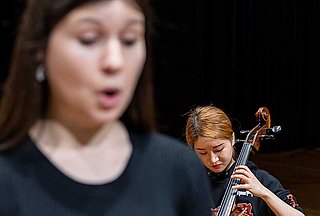
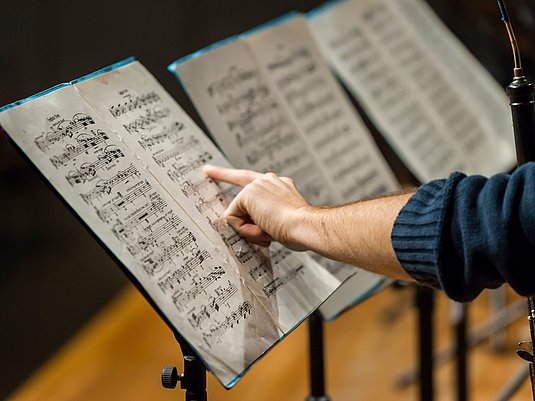
Contact
Vice Dean Department 5
|
Natalia.Ardila-Mantilla@hfmt-koeln.de |
|
| Address |
Hochschule für Musik und Tanz Köln Theodor-Heuss-Ring 14 50668 Köln |
|
carmen.hess@hfmt-koeln.de |
|
| Address |
Hochschule für Musik und Tanz Köln Sedanstr. 15 42275 Wuppertal |
|
monika.schumacher@hfmt-koeln.de |
|
| Telephone |
+49 (0)175 / 1577 450 |
| Address |
Hochschule für Musik und Tanz Köln Unter Krahnenbäumen 87 50668 Köln |
